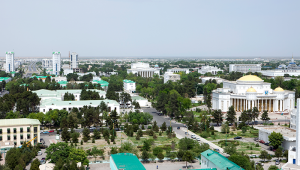By Nick Mann | 28 November 2012
Tunisia’s efforts to increase the transparency of its public finances are set to benefit from a $500m loan approved by the World Bank yesterday.
The ‘Governance, opportunity and jobs development policy loan’ will support a package of reforms to help the North African country’s economic recovery by increasing its appeal to investors. It also aims to ensure a more equal distribution of jobs and services across the country and in less-developed rural areas in particular.
Part of the money will go to improve access to government information to ensure more transparent and accountable governance. It follows an initial $500m loan awarded in June 2011 to support the introduction of an ‘Access to Information’ law, lauded by the World Bank as one of the first of its kind in the region.
As a result of the law, the Tunisian Ministry of Finance now publishes monthly data on budget execution. It is also preparing an interactive web platform to open up access to data on its public finances.
The new loan will support further measures aimed at making information across the Tunisian administration more accessible to the public.
Simon Grey, World Bank country director for the Maghreb, said: ‘The Tunisian people have clearly expressed their demand for more transparent and responsive government.
‘The government of Tunisia has adopted a number of measures to respond to these aspirations. The continuing partnership between the government and the World Bank will help expand these reforms so that they translate into real progress towards more transparent governance and more inclusive growth.’
Following this latest loan, the Tunisian government will also expand a pilot programme to remove or simplify regulation in ministries that deal with economic activities. Under the pilot launched last year, the Ministry of Finance is working to eliminate 10% of tax and customs regulation and to ‘significantly streamline’ a further 85%.
The expansion of the programme to a further nine ministries is critical to reducing corruption and encouraging private sector investment, the Bank said.
Tunisia will also use its loan to strengthen the stability of its financial sector through strategic audits and improved regulation.
The funds will also support social services reforms aimed at improving job-entry programmes for young people and certification for higher education institutions and staff.













